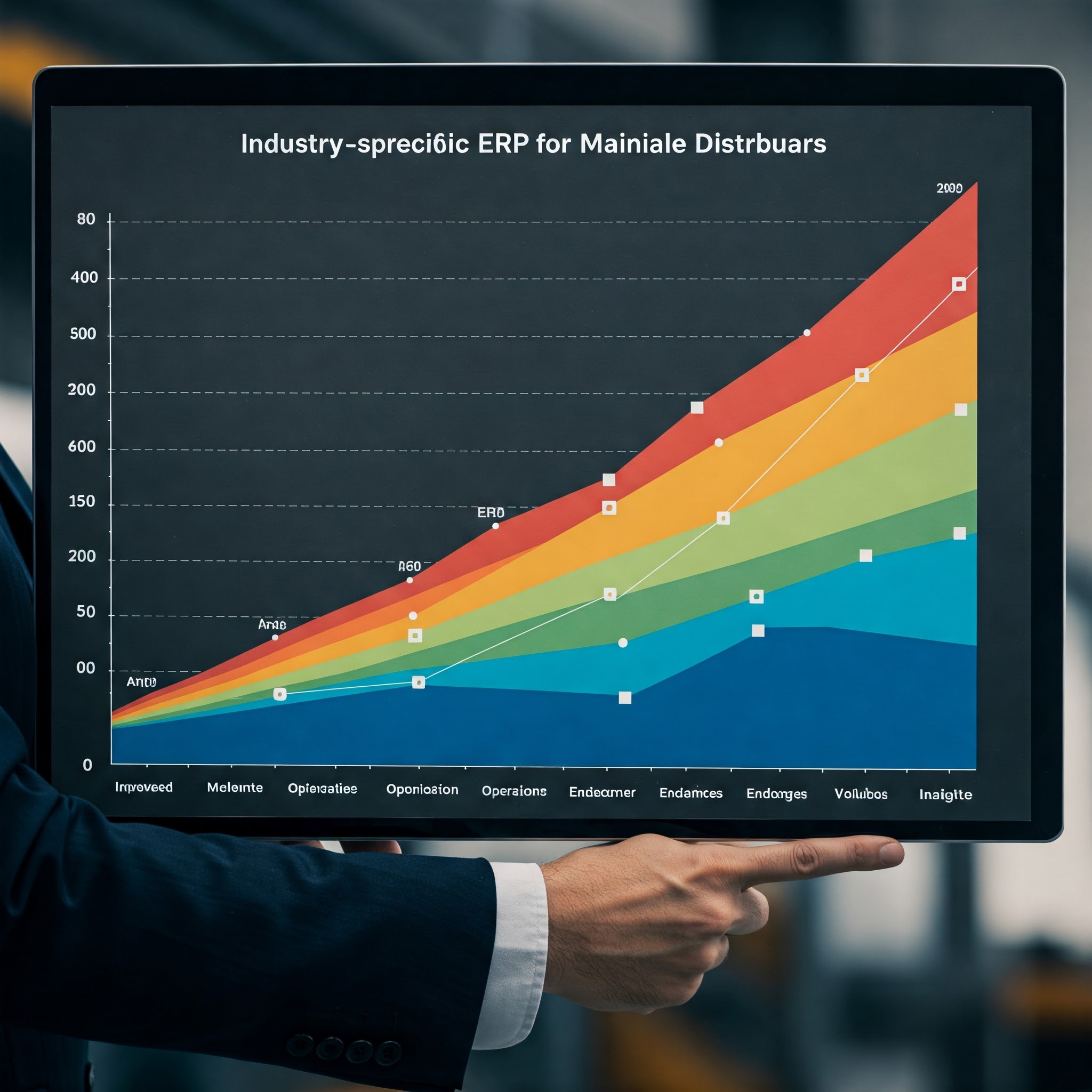
- Introduction
- What Is an Industry-Specific ERP?
- 5 Key Advantages of Industry-Focused ERP for Distributors
- Real-World Examples: ERP Benefits by Industry
- How to Choose the Right Industry ERP
- Conclusion
In today’s fast-moving distribution landscape, staying competitive means having the right technology tailored to your industry. Generic ERP systems may seem sufficient, but they often fall short when it comes to solving the specific operational challenges faced by distributors in sectors like HVAC, electrical, pharma, fasteners, and plumbing.
This is where industry-specific ERP solutions shine—giving you the functionality and flexibility your business needs to thrive in a competitive market.
What Is an Industry-Specific ERP?
An industry-specific ERP is an enterprise resource planning system designed with features, workflows, and compliance tools tailored to a particular industry. Unlike general-purpose ERPs, these solutions come with pre-built modules, reporting templates, and integrations based on the real-world needs of your niche.
For distributors, this often includes:
- Multi-warehouse inventory management
- Real-time order tracking
- Lot/batch tracking
- Kitting and assembly tools
- Trade compliance features
- Supplier and vendor management
Key Advantages of Industry-Focused ERP for Distributors
1. Tailored Workflows Out of the Box
Generic ERPs require extensive customization to fit your processes. Industry-specific solutions come pre-configured with workflows optimized for wholesale and distribution, minimizing time and cost during implementation.
2. Compliance-Ready Features
Industries like pharmaceuticals or electrical components often have strict regulatory standards. Specialized ERPs offer built-in tools for traceability, documentation, and compliance reporting.
3. Better Inventory & Order Accuracy
Distributors with high SKU volumes need real-time inventory visibility. Industry ERPs are designed to handle complex inventory structures, backorders, substitutions, and special pricing models more efficiently.
4. Enhanced Customer Service Tools
Your ERP should help improve response times, manage customer-specific pricing, and provide a 360° view of the customer. Industry-focused ERPs often integrate with CRMs and support advanced customer management out of the box.
5. Competitive Insights and Reporting
Prebuilt dashboards and industry KPIs help decision-makers stay on top of performance. Whether it’s margin per product or fill rate by warehouse, you’ll get actionable insights—faster.
Real-World Examples: ERP Benefits by Industry
Pharmaceutical Distribution
- Lot tracking, expiration date control, and FDA compliance
- Cold chain logistics management
- Documentation for product recalls and audits
HVAC & Plumbing Supply
- Kitting and bundled item management
- Seasonal demand forecasting
- Customer-specific pricing and contractor accounts
Electrical Distribution
- Detailed product specs and configurators
- Multi-location inventory with barcode scanning
- EDI integration for manufacturer relationships
Fasteners & Industrial Supply
- High-volume SKU management
- Serialized inventory tracking
- Vendor-managed inventory (VMI) capabilities
How to Choose the Right Industry ERP
When evaluating ERP options, ask the following:
- Does the vendor have experience in your industry?
- Are there industry-specific case studies or testimonials?
- What pre-built features align with your business needs?
- Is the system scalable for future growth?
- Does it support compliance, multi-warehouse logistics, and supplier integration?
Explore ERP options like NetSuite, Epicor, Acumatica, SAP Business One, Advantive, and Ximple Solutions, all offering varying degrees of industry specialization for distributors.
Conclusion
Choosing an industry-specific ERP system is not just about technology—it’s about gaining a competitive edge in a demanding market. For wholesalers and distributors, the right ERP can lead to faster order fulfillment, tighter inventory control, improved compliance, and better customer service.
The takeaway? Don’t settle for one-size-fits-all ERP. Your business deserves a solution designed to meet the real-world demands of your industry.
